My Travels: The Galápagos Islands — Bartolomé to Santa Cruz
Manifest team member, Mike Casella, recently took a trip of a lifetime to the Galápagos Islands, and he’s sharing notes from his travels — as well as some amazing photos — with us here on the blog. This is the second installment of the four-part series. Enjoy!
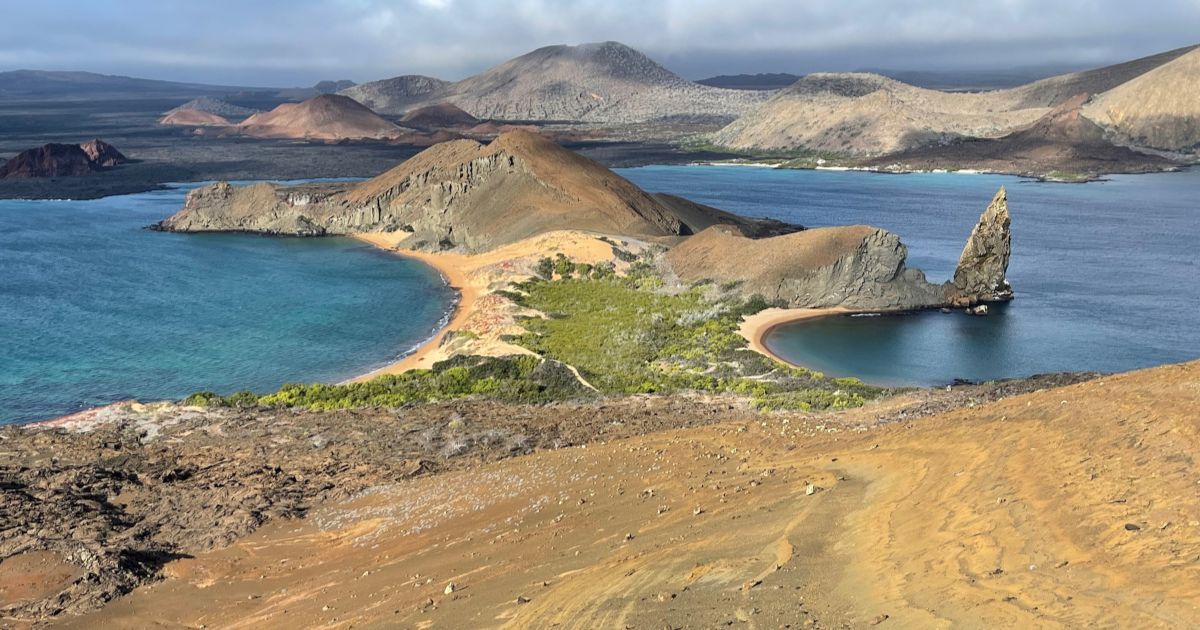
Day 3
It was typical during the trip to be underway at night, traveling to a new island. Going to bed with one view and waking up with a new view only added to the adventurous feel of the trip. On this day, we woke up anchored just off of the beach on Bartolomé Island and took the Zodiac out for our first dry landing.
We had both dry and wet landings during the trip (fairly self-explanatory as with dry landings your feet ideally stay dry and with wet landings your feet will most likely get wet). The boat nosed up to the small dock and staff assisted us off the boat and onto solid land. Waiting to meet us, as if on cue, were two iconic creatures of the islands—a marine iguana and a sea lion. We had to step around the sea lion lying on the boardwalk; It was incredible to be so close and to see that it was so unbothered by us.
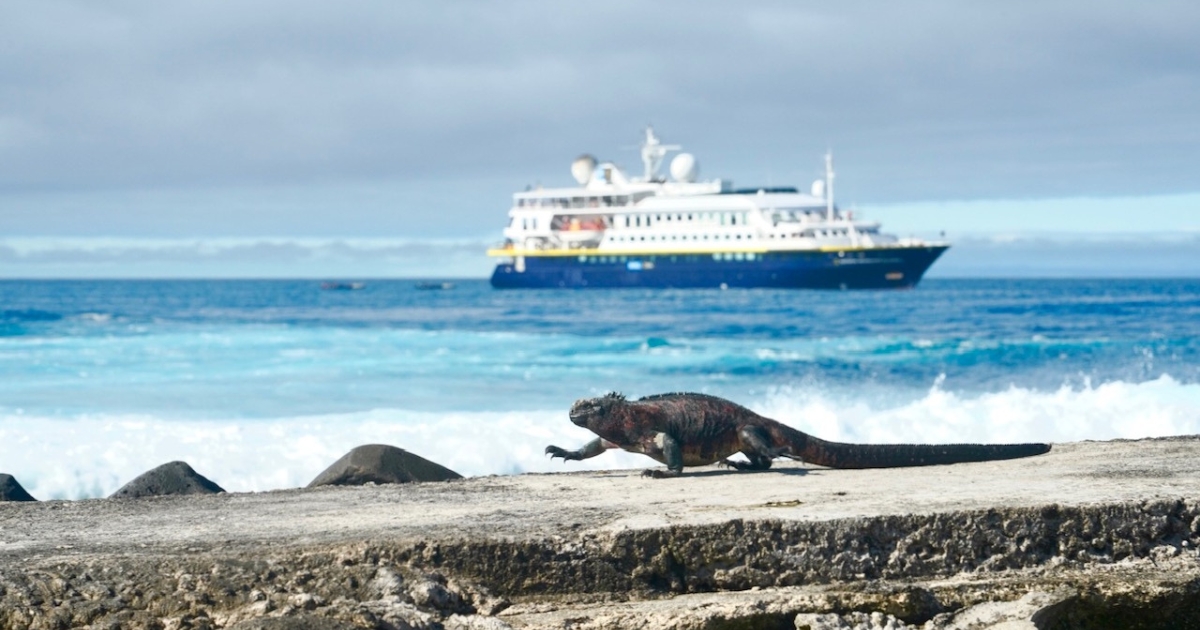
We were separated into small groups of 8–10 for most activities during the day, as they were optional, and some guests had stayed behind. Each group had its own naturalist, all of whom had to be from the Galápagos in order to work in the national park. Being from the islands, they understand the importance of the balance between conservation and tourism and act as half naturalist and half land stewards to oversee, help protect, and promote the natural beauty of the islands.
We continued to learn about how Bartolomé Island is a very dry island and has sensitive vegetation. Because of this, there is a raised boardwalk for people to walk on to help preserve the remaining untouched land. After a few stops to have mini geology and history lessons, we made it to the top of Bartolomé for one of the most incredible and visually appealing panoramic scenes of the islands. A variety of colors contrasted hard against each other—the blues of the water against open sky and the orange and dark colors of the volcanic landscape painted an amazing sight.
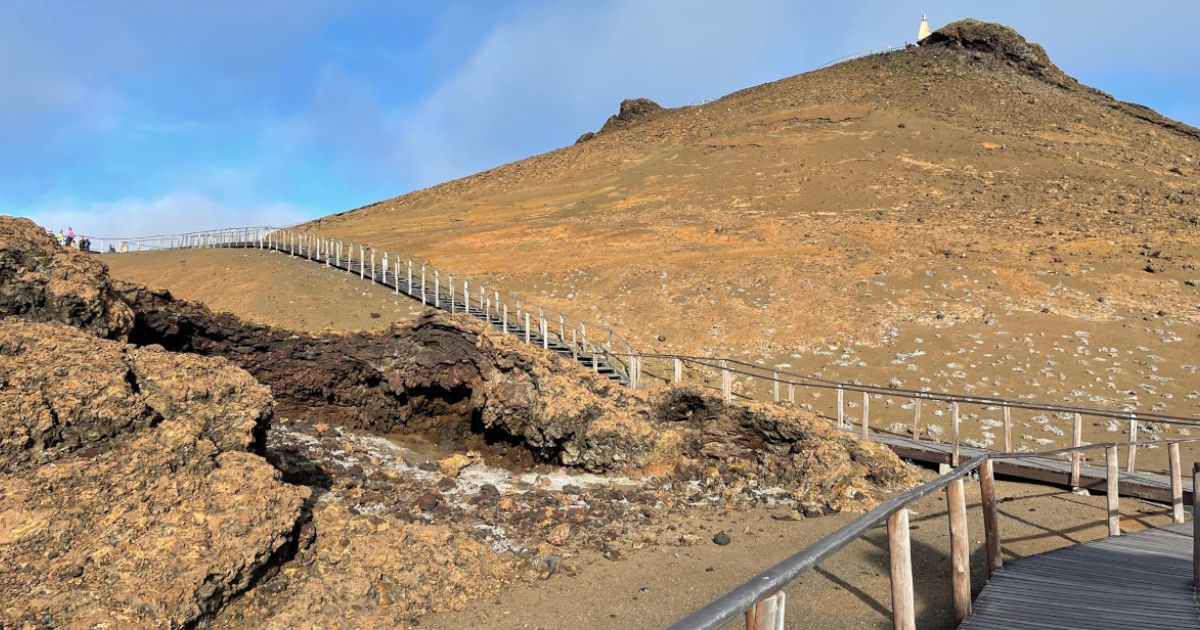
After the hike down, we went to Playa Dorada, the golden-sand beach we’d seen from the viewpoint on our hike, situated under the famous Pinnacle Rock. It was our first snorkel excursion and our first wet landing, as we hopped off the boat and into the shallow water on the beach.
A little way down the beach we saw a Galápagos Hawk. Our naturalist, Pato, said it was a younger hawk, looking for a meal. After donning our snorkel gear, we got in the water and put our fins on, and we were off. We snorkeled just off of Pinnacle Rock and saw a number of different fish species, vibrant corals, and sea creatures, including a white-tipped reef shark and our first underwater interaction with the playful sea lions. It was great to spend time in the water.
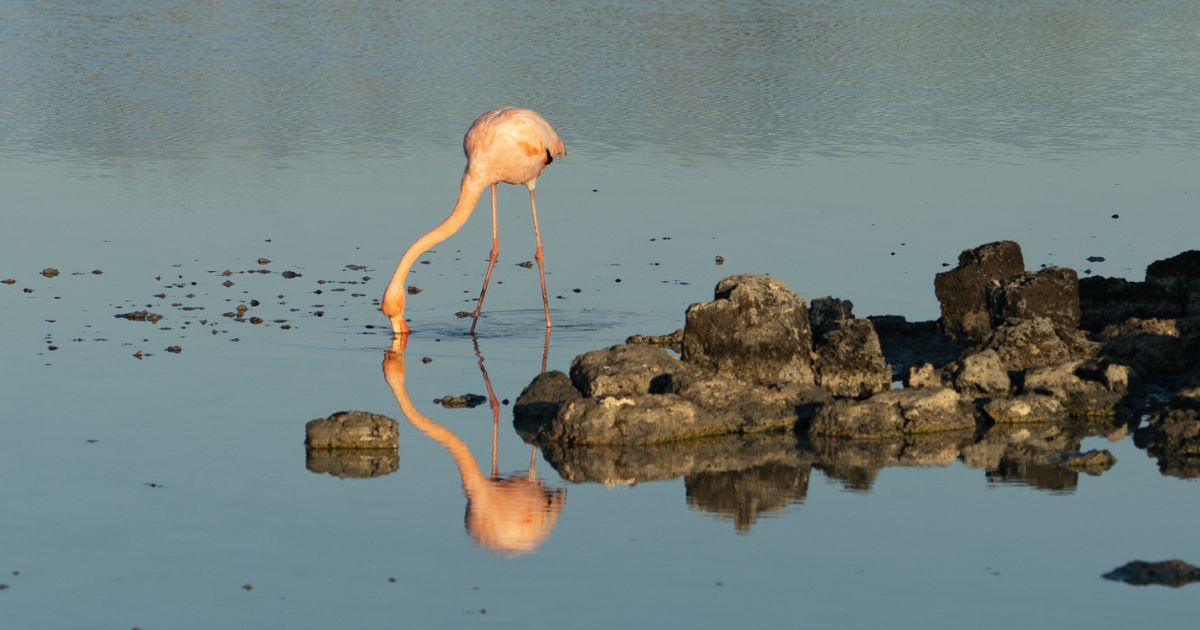
After we were back on the ship, we enjoyed a presentation on the human history of the Galápagos. It was interesting to learn about the human history of the islands, as most people think of the Galápagos as a land of nature that’s unspoiled by humans.
As the presentation went on, we made our way to the northwest side of the island of Santa Cruz. Our next destination was Cerro Dragon, or Dragon Hill, a known home for the dragons that live there. After a dry landing, we made our way towards the hill. Not far off the beach, and through some giant prickly pear cactus, we came upon an inland lagoon, where we saw a pair of Galápagos Flamingos. The plumage was vibrant and almost crimson-colored in the evening sun as it reflected in the lagoon—a stunning sight.
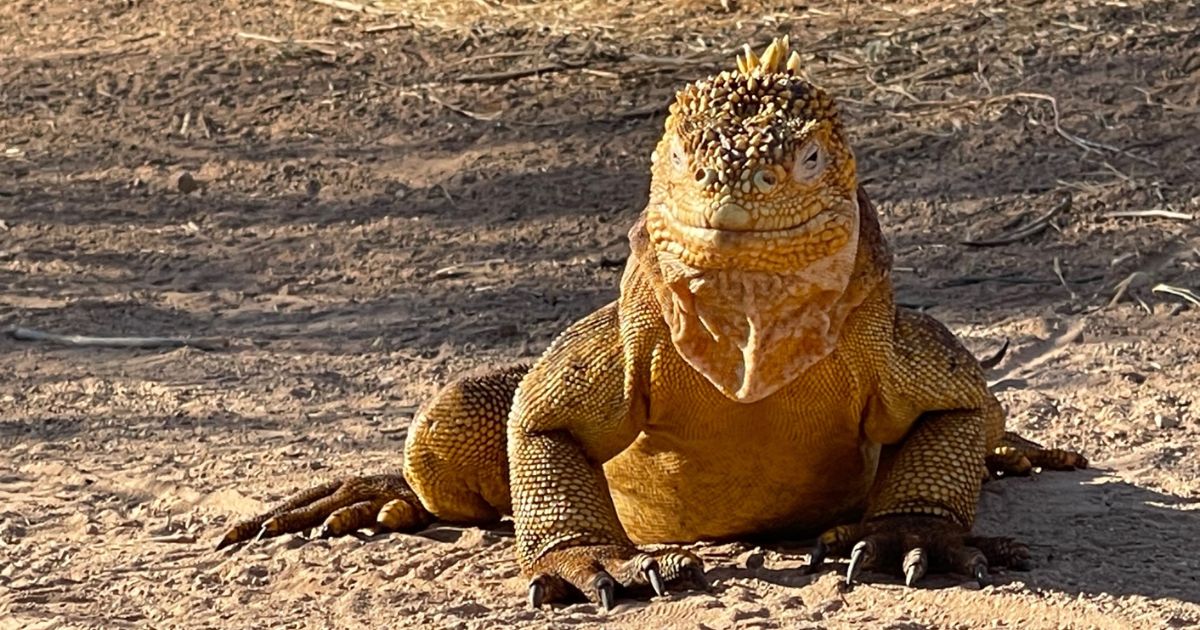
After leaving the lagoon, we hiked into a more arid and drier environment, where we began seeing large holes in the ground and then, finally, the star of the hike—the dragon, or land iguana. These prehistoric looking creatures dig large holes in the ground to make their homes. Some were more relaxed than others. Most were soaking in the sun, lying in the middle of the trail. There was one a few feet off the trail that wasn’t fond of our passing. It began bobbing its head up and down, which we learned was a sign of agitation. We moved on and continued the loop trail, stumbling upon numerous other land iguanas. We were able to stop and spend time with a couple of them for a few solid minutes, just enjoying their presence. As we finished the hiking loop, the sun was getting low on the horizon. It cast a golden hue on the lagoon and beach as we got ready to head back to the ship. A fiery sunset guided us back.
We hope you’re enjoying this travel series! If you missed the first installment, you can find it here. And if you’re inspired to experience the beauty of Galápagos for yourself, check out the exciting Lindblad Expeditions trip that’s up and ready to be booked on our Experiences page.


[…] enjoyed this blog series. If you missed any of the previous posts, you can find them here, here, and here. And if you’re inspired to experience your own Galápagos adventure, we’ve got an […]